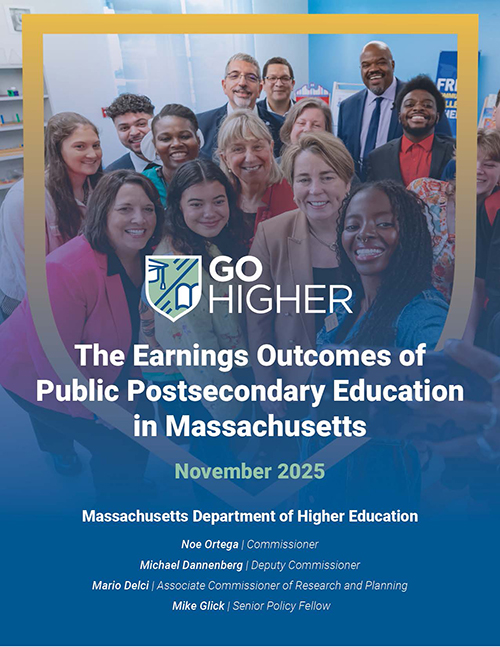The Earnings Outcomes of Public Postsecondary Education in Massachusetts
For the first time, the Massachusetts Department of
Higher Education is publicly releasing data on the
earnings outcomes of students and graduates of
Massachusetts public colleges and universities.
In this commentary, we share reflections on our data, situate our findings within the broader literature, and offer key questions and links to policy implications. Findings include:
- Earning a college degree generally leads to an earnings premium. Postsecondary degrees are associated with $20,000–$30,000 in higher annual earnings compared to a high school diploma. The earnings gap between associate and bachelor’s degree completers grows over time, reaching roughly an $11,000 difference five years after graduation. Students who complete a degree earn substantially more than those who “stop out.”
- Field of study matters. Earnings vary widely by discipline. Five years out, Health, STEM, and Trades fields are associated with the highest earnings. In some cases, students with associate degrees in high-demand fields (e.g., Health) out-earn those with bachelor’s degrees in lower-paying fields such as Humanities five years after graduation.
- Higher levels of educational attainment are associated with reduced income gaps across some but not all demographic lines. Degree completion narrows race- and ethnicity-based earnings gaps compared with high school-only earners. However, gender-based gaps persist, including notable disparities in STEM fields.
Authors:
- Noe Ortega, Commissioner
- Michael Dannenberg, Deputy Commissioner for Policy
- Mario Delci, Associate Commissioner for Research and Planning
- Mike Glick, Senior Policy Fellow
Published November 19, 2025

![]()
![]()
![]()